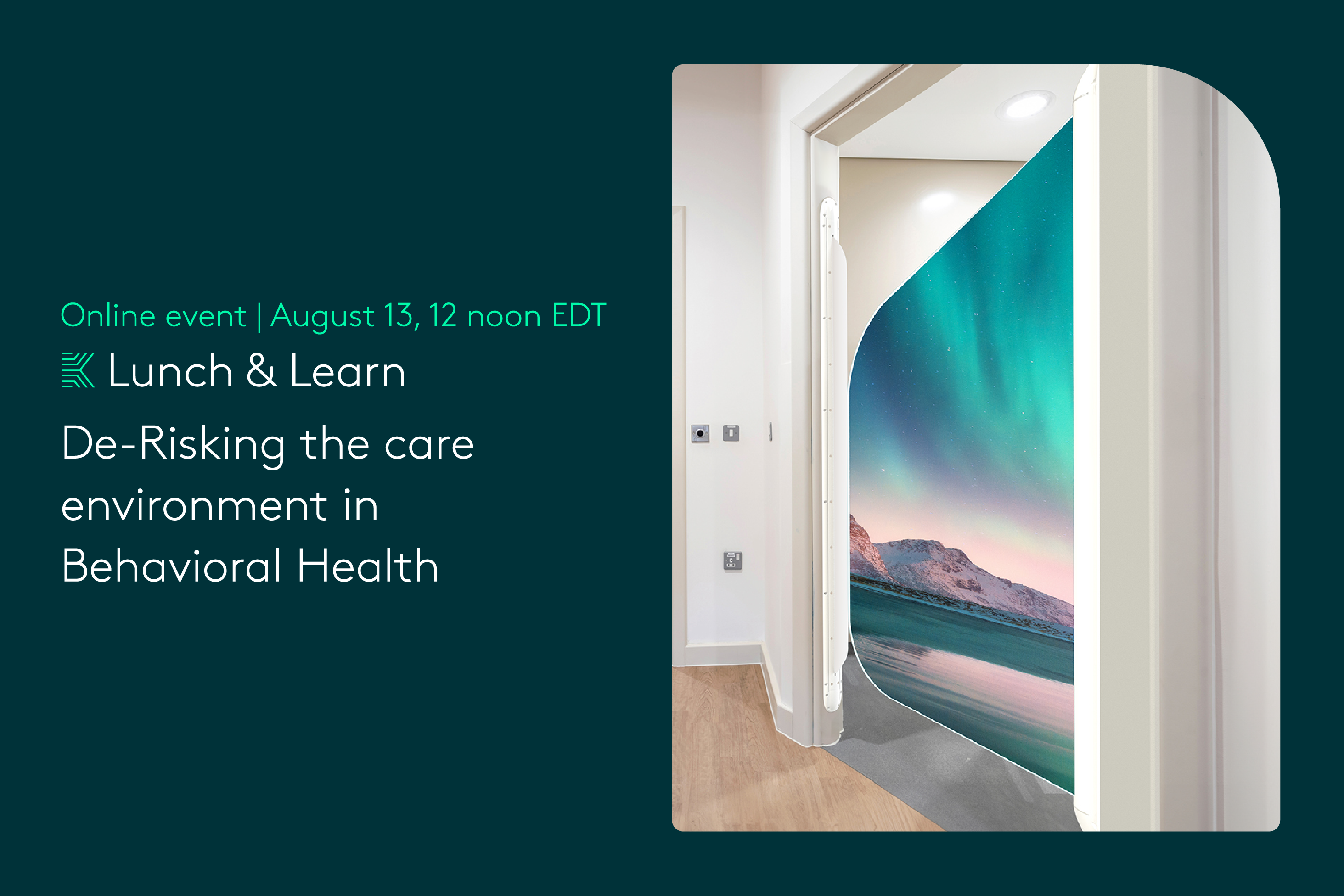Preserving patient dignity is not only a fundamental component of care in behavioral health, but a critical element that can significantly impact a patient’s well-being and their road to recovery. For healthcare professionals and architects specializing in behavioral health design, implementing strategies that prioritize patient dignity is essential.
In this blog you will find three practical ideas and insights on supporting patient dignity in high-risk facilities along with valuable guidance for creating environments that maximize safety.
Designing private & comfortable spaces
Privacy is a cornerstone of patient dignity and well-being. When inpatients have a private personal space they can retreat to, they are able to maintain a sense of autonomy and control which can have a positive impact on their mental and emotional well-being.
“Ensuring that patients have control over their personal space can significantly impact their overall well-being and recovery process. It allows them to feel safe, respected, and empowered, which are essential components of therapeutic environments” – (Dr. Lisa A. Fontes – Senior Lecturer at the University of Massachusetts Amherst - October 21, 2021)
Here are a few ideas that can help bring in that sense of control:
- Soundproofing materials and visual barriers
- Sensory boards and interactive devices such as the SERENITY Interactive Panel
- Movable partitions and multifunctional furniture
- A quiet reading nook
The idea is to create a more serene and comfortable environment for patients to rest and recover. In doing so, creating flexible spaces that can adapt to the unique needs of patients is another key element in designing private and comfortable environments.
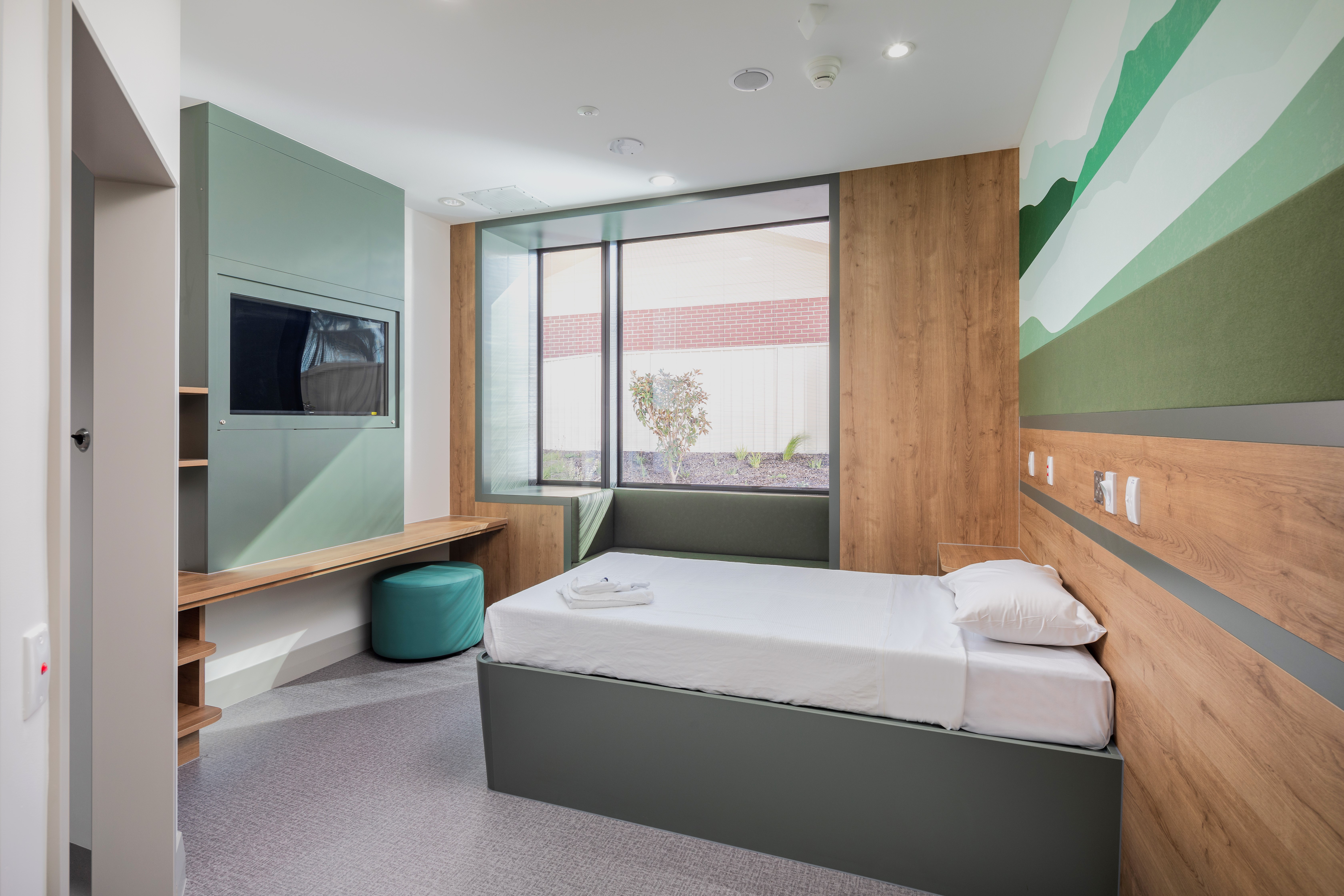
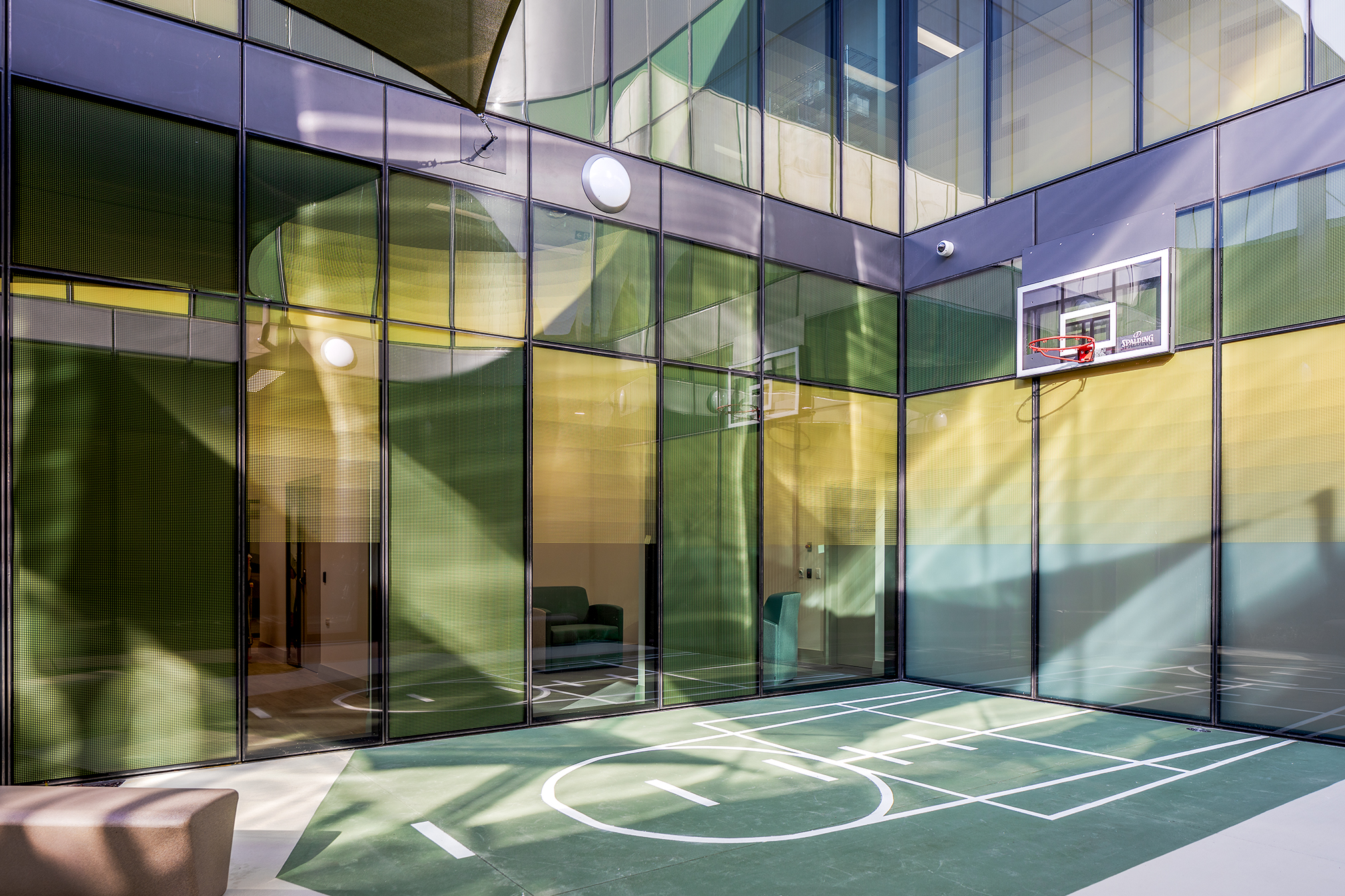
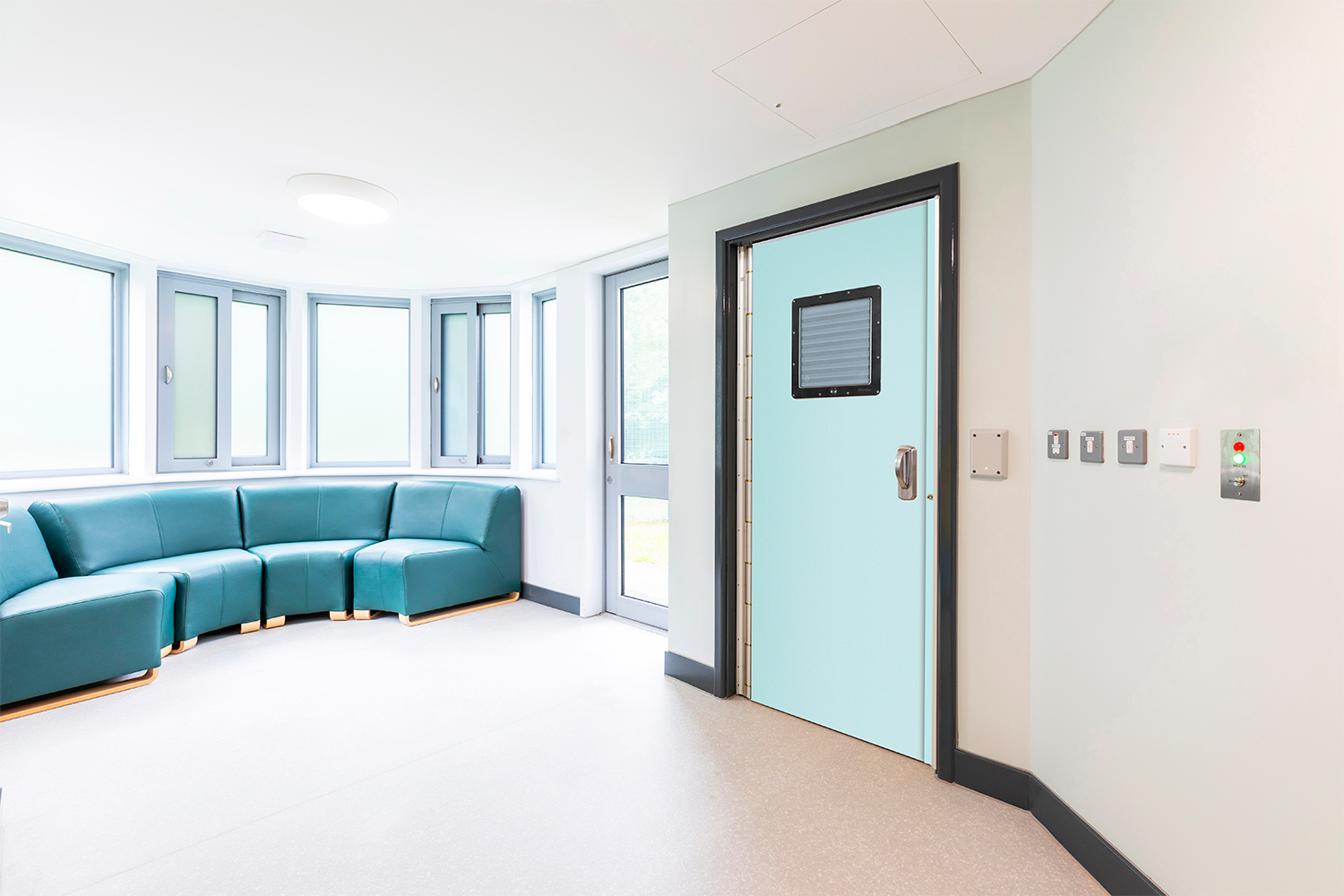
Implementing safe yet non-institutional design
The necessity of ligature-resistant fixtures and furniture cannot be neglected, and as Your Partner in Patient Safety, at Kingsway Group we exist to support you in this critical area.
When it comes to designing fixtures and furniture for behavioral health environments, the ligature-resistance, robustness, and overall product quality is pivotal in preventing self-harm and ensuring the safety and well-being of patients.
Implementing a safe design with effective ligature-resistance enhances immediate patient safety, but the benefits extend beyond this when selecting products that are developed in a compassionate design process. Such products hold the end user’s safety and well-being central during the development process, resulting in functional performance combined with elegant, non-institutional aesthetics that contribute towards a more therapeutic environment. Numerous Behavioral Health Centers have successfully adopted such solutions from Kingsway Group and observed significant improvements.
Our SHOWER Door System is one example of this. Ligature-resistant, high-strength, and with a therapeutic appearance, it provides an effective solution for preserving patient privacy and dignity in washroom environments while minimizing ligature and weaponization risks. The SHOWER Door System’s robust EnduraFlex leaf is shaped to resist ligature attachment while safely preserving patient privacy – without altogether preventing staff observation when it’s required. And thanks to its unique ligature-resistant MegaHinge system, the doorset is available with an auto-closing mechanism to improve patient privacy even further.
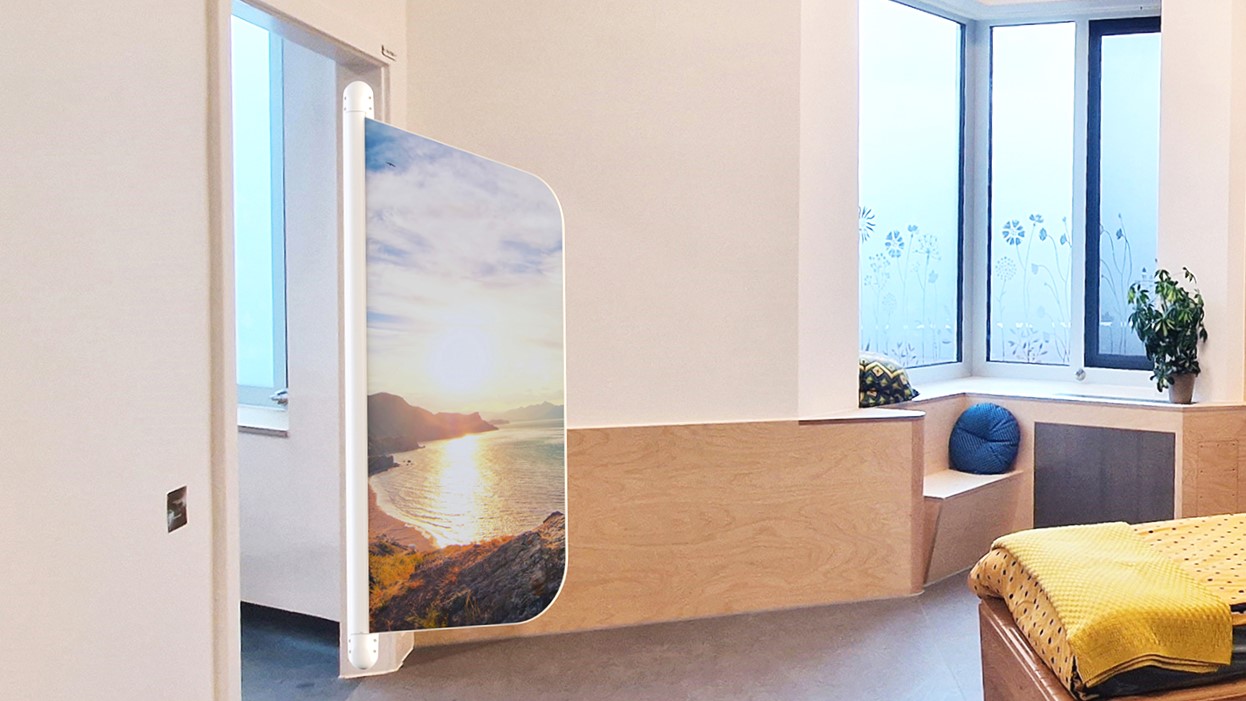
Supporting dignity without compromising safety
A balance between necessary safety elements and preservation of patient dignity is essential in behavioral health facilities. The care environment fundamentally needs to be safe, but creating a space that is also calming and therapeutic can help support patient dignity within the care setting.
“While the environmental characteristics will certainly not themselves be able to heal, they will be able to contribute to the patients’ state of mind – the psychological context in which treatment is received.” (Ussher, 2010, Contributions of the Built Health-Care Environment to Effective Treatment and Recovery)
Ussher goes on to explain how the “treatment facility needs to welcome and encourage patients; make them feel comfortable and relaxed; communicate to them the caring nature of the medical professionals; and reassure them of their own dignity and self worth.” Customization can play a key role in enhancing the built environment to help achieve this. For example, our SHOWER Door System and Duralux Vision Panels allow for custom imagery to be introduced into the care environment, such as therapeutic landscapes or art pieces, helping to create a more uplifting space that communicates to patients they are valued and cared for.
Ensuring patients have a sense of control and autonomy over their space can also support their dignity. Kingsway’s SERENITY Interactive Panel enables patients to personalize their environment and provides them with safe entertainment, supports routine and planning, and encourages creativity with the aim of supporting their overall well-being.
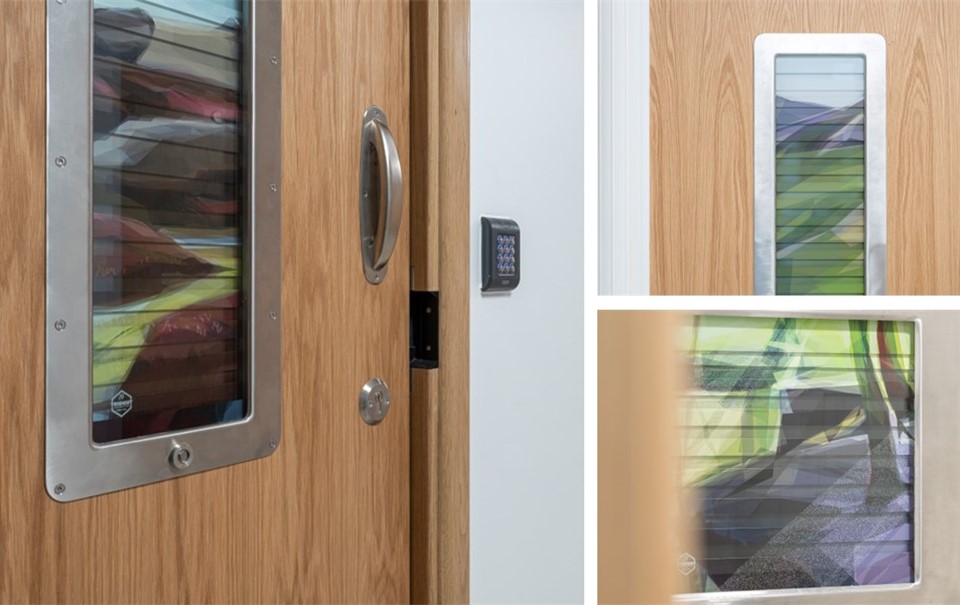
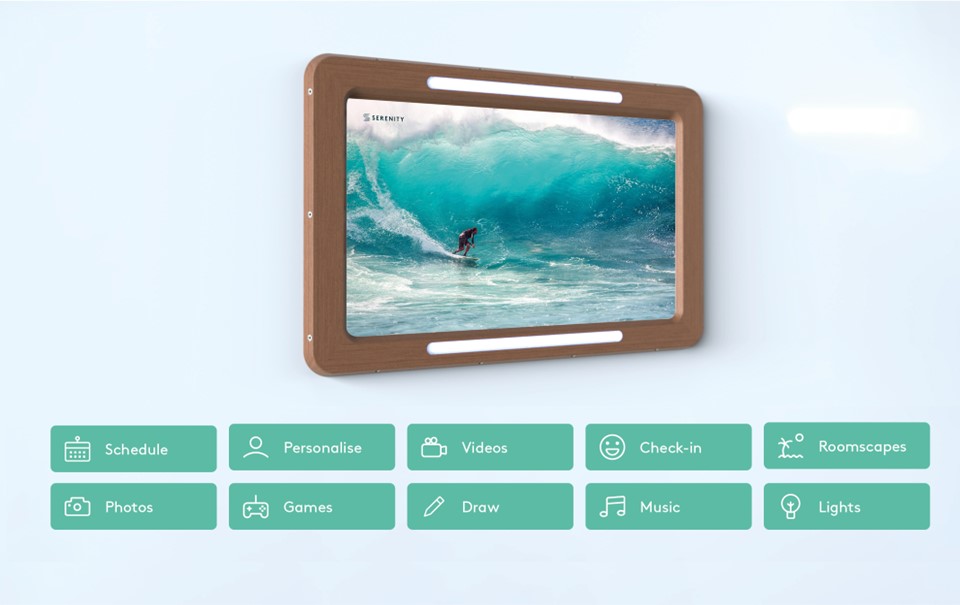
Conclusion
Supporting patient dignity in behavioral health environments is a complex matter, and the unique needs of patient groups and individuals can vary greatly. As outlined in this blog, the built environment can play an important role in reassuring patients of their own dignity and self worth, as well as helping them to feel comfortable and relaxed within the care setting. This blog highlights some of the ways you can implement compassionate and safe design to create environments that support recovery, respect autonomy and preserve dignity.
Would you like to find out more about our ligature-resistant products or ways to support patient dignity?
Join us at our next online Lunch & Learn event on Tuesday, August 13 as we explore risk reduction in behavioral healthcare environments – click the button to sign up!
